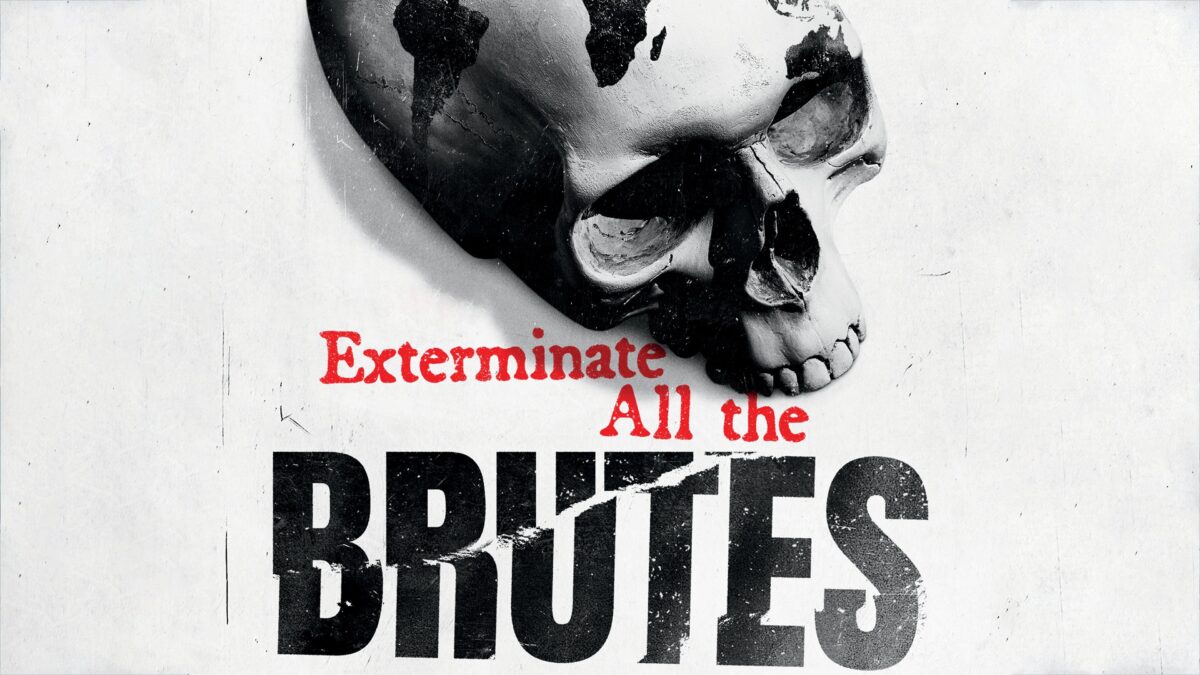Anyone who denies the brutal, exploitative nature of imperialism is either a fool or worse. It is hard to overstate this sentiment, particularly in our current global climate, and my years of studying the British Empire and its modern European cousins has only reinforced it. Thus, when Heather and I noticed a four-part documentary on HBO covering not just that very topic but examining the ways that colonialism’s racist legacy still haunts us, we had to add it to our queue. Knowing it would likely not be easy watching, we waited until we both felt up to it, and that evening finally rolled around this past week.
From the beginning, Raul Peck’s Exterminate All the Brutes both intrigued and confused me. I had not seen any of Peck’s previous work, but it was apparent that he is a brilliant filmmaker with a cutting intellect; his main theme that, for all its real local differences, the core of Western imperialism in the modern era remained essentially the same from the settlement of the Americas to the conquest of India to the partition of Africa is an insightful one, and indeed I’ve expressed variations of the observation often on this very blog. The historical moments Peck highlights, too, are generally very good, and it’s gratifying to see a focus on art, literature, and sociology alongside the usual big geopolitical events.
Yet for all its promise, Exterminate All the Brutes quickly began to fall flat for me. It’s clear that this story is eminently personal to Peck, and he includes himself in his own narrative from the very start through both narration and a frank examination of his own experiences. Pain, Peck’s own and that of his subjects, bleeds out of every frame, yet I could not help but think this intimate, expressive style might not have been the best fit for the very necessary message being conveyed. In his directorial statement of intent (available on HBO’s streaming service Max), Peck explains that after his film I am Not Your Negro, he faced significant ignorance and even push back and from others on the extent to which racism still influences society, and that this documentary was the culmination of his efforts to really understand and convey the themes he felt so strongly about. It is curious, then, that the way Peck chose to tell that story–and he is clear that this is not an addition to historical research, but a story–is that of an arthaus film rather than an organized argument. Perhaps this was unavoidable given its teller’s auteur sensibilities, but as I’ve discussed with Francis before, this day and age requires any such confrontation of deeply rooted prejudices to be so impeccably organized and compellingly told as to be undeniable. Anything less just dissolves into some kind of propaganda in the minds of those who remain unconvinced.
The dramatic recreations of Exterminate All the Brutes deserve special attention here. The two included in the first episode both feature events of the nineteenth century: United States military forces attempting to reclaim runaway slaves from a Seminole village, and a Belgian overseer brutalizing African rubber laborers in the Congo. In both instances, the chief “villain” is played by Josh Duhamel, in an intriguing attempt to artistically convey the connective tissue that makes all these instances of colonialist oppression similar. Yet the absence of any specific details or use of primary sources to frame the dramatizations, coupled with the extreme, almost cartoonish use of violence against colonized peoples lead to them ultimately losing much of the force they should have. Without a doubt, such heinous acts occurred with regularity throughout the modern European empires, regardless of ruler, yet by recreating a generic scenario instead of an historically attested massacre, anyone who was not already convinced of Peck’s arguments can all too easily reject them as sensational fictions, strawmen constructed purely to prop up a piece of “unsupported” anticolonial “propaganda.”
By the end of the first episode of Exterminate All the Brutes, all these factors had combined to make me, a specialist in this field, bored and uninterested in even moving on to the second episode. Part of this was undoubtedly personal; being white, I of course have no experiences similar to those of the affected communities Peck highlights, and I’ve also just never been one for more artsy films. Yet in the absence of compelling organization, sourcework, or argument, this documentary seemed to me simply Peck’s unfocused, anguished cry of pain at a world and history that continues to mistreat his own and many other peoples. It is certainly enough to invoke empathy, but really convincing all those remaining doubters requires a much different product.
